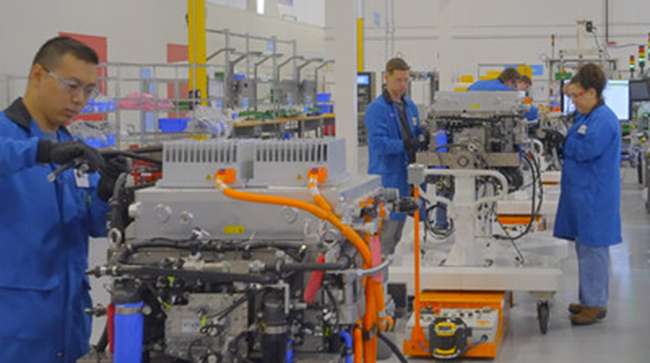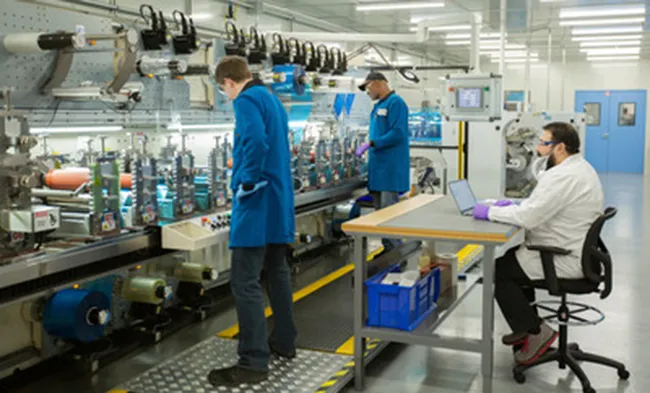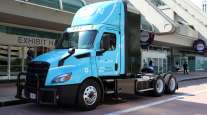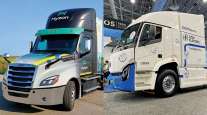Staff Reporter
Hyzon Begins Series Production of Fuel Cell System for Truck

[Stay on top of transportation news: Get TTNews in your inbox.]
Hyzon Motors on Oct. 8 began series production in Bolingbrook, Ill., of the 200-kilowatt fuel cell system set to power its Class 8 hydrogen fuel cell truck, the company announced.
The Bolingbrook facility will be able to produce 700 fuel cell systems a year on a three-shift basis.
“We are excited to announce the start of production of our single-stack 200-kW fuel cell system on National Hydrogen Fuel Cell Day,” said CEO Parker Meeks. “Our Bolingbrook facility is one of the largest fully integrated fuel cell systems production facilities in the United States and the only 200-kW single-stack fuel system to be launched into serial production, a significant step for zero-emission technology manufacturing in the U.S.”
“This milestone also represents another inflection point in our mission to decarbonize heavy-duty industries. By standardizing and scaling up production, we can provide more customers with the high-performance, zero-emission solutions they need to meet their sustainability goals,” Meeks said.
On National Hydrogen Fuel Cell Day, we’re thrilled to announce the Start of Production (SOP) of our 200kW Fuel Cell System at our Bolingbrook facility! 🌍 This milestone positions Hyzon as a leader in zero-emission technology, with the capacity to produce 700 systems annually. pic.twitter.com/2euyNuPap7 — Hyzon (@hyzon) October 8, 2024
Hyzon began series production of its Class 8 truck Sept. 16. Production will initially take place at a Fontaine Modification facility in Charlotte, N.C. The company intends to provide Fontaine with kits for the fuel cell system, battery packs and hydrogen storage systems. Fontaine adds these onto vehicle chassis.
The current base chassis for the truck is a Freightliner Cascadia in two day-cab variants, but other options are possible for installation of the powertrain.
Hyzon’s 200-kW fuel cell system replaces two 110-kW systems used on first-generation trucks the company built and made available to customers and potential customers for testing. The second-generation fueling system is 30% lighter and smaller, and 25% more cost-efficient than its predecessor.

Hyzon’s fully automated roll-to-roll Membrane Electrode Assembly manufacturing line is prepared for the next production run. (Hyzon)
Production at Bolingbrook includes the membrane electrode assembly, the core of the fuel cell, which Hyzon said enables integrated manufacturing, without sourcing fuel cells from third parties.
“Our transition to full-scale manufacturing is a major milestone, as it allows us to move from building prototypes to producing standardized units at volume — from [membrane electrode assembly] to complete [fuel cell systems],” said Chief Technology Officer Christian Mohrdieck.
Hyzon concluded a successful ISO 9001 audit of its fuel cell manufacturing and design/R&D activities in September and expects to achieve formal ISO 9001 certification by the end of the fourth quarter of 2024.
Starting production will allow the company to increase the revenue portion of its balance sheet. Hyzon reported a $50.8 million loss in the second quarter of 2024, with average monthly net cash burn of $9.2 million. As of June 30, the company’s cash on hand totaled $55.1 million.
As a result of the losses, Hyzon carried out fundraising and cost-cutting drives, including shuttering operations in the Netherlands and Australia.
Want more news? Listen to today's daily briefing below or go here for more info:




